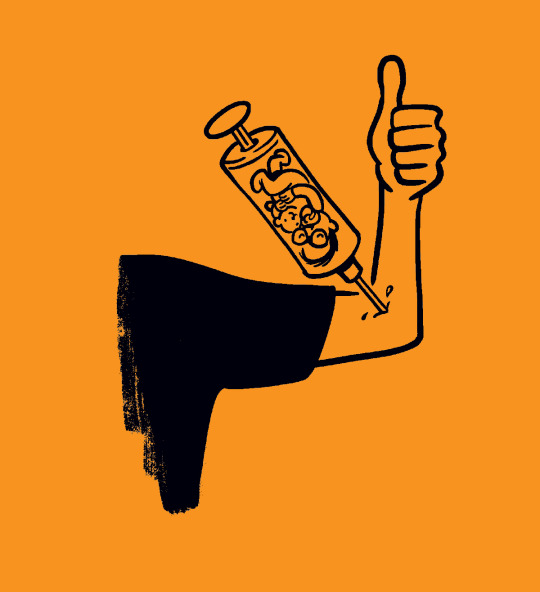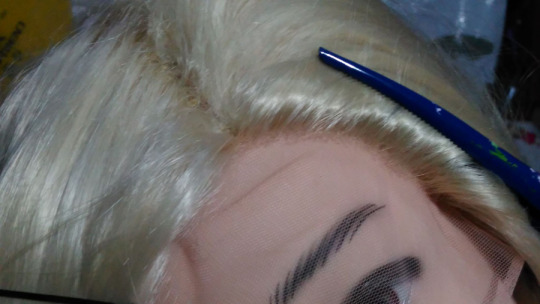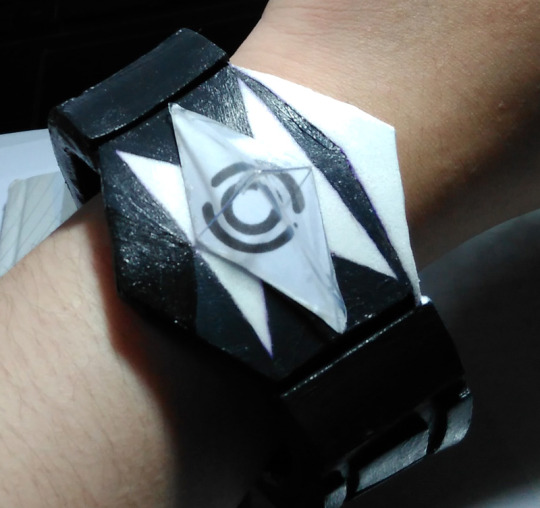#sometimes i subject myself to movies with terrible design i regret it always but i never learn
Explore tagged Tumblr posts
Note
What are your thoughts on lis* from blpk? Like in terms of dancing and stage presence? And even her solo bc im actually confused why so many people think she's an incredible revolutionary dancer?? Like her dancing is good but I can never immerse myself in it and it feels like she's just going thru choreo very well but that's about it. It feels very trained if that makes sense. I thought about this bc of your post on the creative stuff and I remember lis* chose the song money and had input for her solo and imo it wasn’t... good. I feel like she would have been much better off if something gave her a concept and music rather than her choosing. Idk.

as much as it would hurt some fans to hear, a lot of their meow meows just have bad ideas. people do not realize how much work and training it takes to learn how to have good ideas and generate good concepts. because you DO have to learn it. it is a skill, just as much as dancing is a skill. i harp on it all the time but there is a reason why historically, these have been two separate disciplines. you think idols are out there learning colour theory and basic spatial design principles and basic fashion design principles and how to research and how to build a reference catalogue and how to synthesize like visuals on top of incredibly strict and physically labourious schedules and dance rehearsals??? some of them on their own time, if that's their interest, sure, but that still doesn't guarantee that they're going to be good at it either. statistically it's just not possible. my graduating cohort of designers in undergrad was seven people and maybe 2.5 of us are actually good designers; and this is for people who did four years of school specifically for design. you think every actor is writing all their lines??? making their own costumes??? i feel like a broken record but really it is very normal and okay and honestly probably better if idols have concepts and songs handed to them, because it means that there's someone behind the scenes that's designated for that job.
idols having choice and/or input on decisions isn't always a bad thing, but it is the job of the designer/creative director to guide those choices, because more often than not they will be bad. and as a designer you should never let an actor or a performer totally steer the ship, you should work with them to achieve the final product. bad design choices happen from designers losing control of the helm to a performer's star power, or to just plain apathy. if you want an example, see the 2017 live action beauty and the beast film.
ok this will be unpopular, but i've never got the blackpink hype. it's not that the girls are bad performers, because they're perfectly fine, probably above average, but they've just been releasing the same song over and over again and their choreography isn't that compelling. to be completely fair, i was never really a fan of the yg style in the first place, but in a similar vein to bts - blackpink are at the point where they're so big that everything they do has this perfect money polish to it that it becomes aesthetically bland. i think they need a better creative director and a better producer and a better choreographer; they have the ability (and the funds) to push much farther than they do and it's disappointing. in a way i kind of applaud lisa for taking more of a risk with some like a traditional thai styling in lalisa but whoever they have as creative director is just garbage at their job and nothing about that mv and styling makes any logical or aesthetic sense. as far as her as a dancer? she's not untalented, but i don't see the kind of intuitive spark that i see in other top tier idol dancers. i agree with your point of how she looks very 'rehearsed,' it goes back to something i said a while ago about how idols are very good at mimicking and repeating choreography, but don't have the same kind of fluid body understanding as a professional dancers. which again, not a problem, because she's a perfectly fine performer, but there isn't a lot that draws me personally to her performances. it's one thing to be good at the motions, but it's another thing to be good at fully embodying those motions, and that's a lot more nebulous and subject to personal opinion.
#kpop questions#blpk w#starting fights on a thursday lets go girlies#this isnt really that inflammatory imo its just the truth#hot take? idols are actors not musicians. and people's understanding of what an idol's job is#should be more closely aligned with what an actor's job is rather than a musician#yes some of them are musicians also. but thats not a requirement in the same way that performing is a requirement#anyways here's me on my soapbox again. sorry not sorry#the amount of times ive had to talk a director down from an idiotic idea.......too many#i HATE that beauty and the beast movie SO much it makes me want to SCREAM. some of the worst costume design of all time#the absolute tirade i went on while watching it.........some real choice insults came out of it#sometimes i subject myself to movies with terrible design i regret it always but i never learn#text#answers#my bts posts didnt start any fights here's hoping this one will#im not about to tag the full group name though. i do like peace
17 notes
·
View notes
Text
Cool It: You Don’t Have to Be on Every Social Media App

Skip Article Header. Skip to: Start of Article.
Author: Jon Mooallem. Culture
03.14.17
11:30 am
CHRISTOPH NIEMANN
Do I have to try every social media app?
You’ve Got Mail starred Tom Hanks and Meg Ryan and was an awful movie. I watched it in a hotel room recently and found myself thinking about you—thinking about all of us, really. To summarize: It is 1998. Hanks is the cocky, hard-charging scion of a massive Barnes & Noble-ish bookstore chain, about to open a new location on the Upper West Side. Ryan, meanwhile—vulnerable, sappy, like a human kitten—owns a tiny children’s bookstore nearby called the Shop Around the Corner. Ryan’s shop is everything that Hanks’ is not: quaint, neighborly, beloved. And, of course, it stands to be crushed by this encroaching tentacle of Hanks’ Machiavellian empire.
There’s a lot of anxiety in the air. Thematically, the film is concerned with what modernity (symbolized by Hanks and maybe also his high-octane girlfriend, who literally shouts, “Hurry, hurry, hurry!” at her espresso machine) might be doing to our souls (symbolized by Ryan and her boyfriend, who is referred to at a party as the “greatest living expert on Julius and Ethel Rosenberg”). This anxiety is everywhere. It’s a shame kids don’t know what handkerchiefs are, someone says. When office workers play solitaire on their computers, it’s lamented as “the end of Western civilization.”
It’s all so heavy-handed. But here’s the thing: As the bitter Hanks-Ryan bookstore rivalry escalates on the street, Hanks and Ryan are falling in love with each other via email, anonymously. They meet in some kind of chat room and begin emailing each other relentlessly, pouring out their feelings and the poignant whispers of their simpleton hearts. It’s dramatic irony, you see—they love each other in cyberspace, hate each other in meatspace—and the filmmakers milk it for all it’s worth. Scene after scene cuts back and forth between Hanks and Ryan, reading emails on their laughably briefcaselike laptops. Every time that cheery voice tells them “Welcome. You’ve got mail,” it’s a Pavlovian cue that flutters their stomachs and tingles their privates. It’s hard to think of two happier people in the history of film.
But you know what? Joke’s on them. Because what Hanks and Ryan do not know, and can’t possibly predict, is that the same series of tubes that’s serving as a conduit for their love will soon obliterate both their businesses! Soon they’ll both be irrelevant! They’re just too blissed out by each other’s electronic mail messages to recognize that this thing in front of them—this Internet—is also a merciless destroyer of worlds.
Reader, they are us; we are them. We’re blind to the transience of so many things we feel attached to, or else we are so attuned to their transience that we don’t allow ourselves to get attached. The truth is, even as I type this, laughing and smirking at You’ve Got Mail, I understand that someone in the near future will be similarly laughing and smirking at me. (“Typing?!” they’ll say.)
Are you obligated to try new social media apps? Not at all. Use what you enjoy. Try what you think you’d enjoy. Or don’t. You alone get to map out the borders of your online life. But you are, I think, obligated to stay open to exploring new social media apps—to keep yourself from becoming too jaded, too dismissive—and to always entertain the possibility that one of them might become meaningful and useful to you. I mean, I sunk a lot of time into Friendster back in the day, and I don’t regret it. I recognize that, like Hanks and Ryan, I was merely living contentedly in the present, without knowing that the magic of that moment would inevitably crumble—or even worrying about whether it might.
“Sometimes I wonder about my life. I lead a small life … And sometimes I wonder, do I do it because I like it or because I haven’t been brave?” Ryan typed that, sent it to Hanks. Now I’m putting the question to you.
Go Back to Top. Skip To: Start of Article.
Author: Jon Mooallem. Culture
03.10.17
11:00 am

Christoph Niemann
I’m horrible at emoji—it’s like a foreign language for me. I always get “???” replies from friends. What should I do?
In 1918, a moderately but fleetingly famous Belgian man named Jean Pierre Pierard published an intriguing column in an American newspaper. Pierard was an actor, sometimes billed as “Le Colosse,” since he happened to weigh 342 pounds. (He was just a tremendous, tremendous fellow.) He was also the “Most Married Man in the World,” and this was the particular expertise with which he was writing. What does it mean to be the Most Married Man in the World? Well, at the time, Pierard was on his 23rd wife. Since 1886 he’d averaged one marriage every 1.4 years. But still, he felt strongly that “it is not good for man to be alone.”
This is the most important thing for you to know about Pierard—and I mean you specifically, my weird emoji-aphasic friend: Jean Pierre Pierard loved being married. He loved the institution of marriage—held it in the highest esteem—and felt a strong obligation to defend and venerate it against anyone who was starting to view it with the least bit of cynicism. “I believe in marriage,” he wrote. Deep down in the hallows of his giant being, the man was a romantic. And an optimist. And nothing about the clumsiness with which his optimism or romanticism kept colliding with reality was going to drain those feelings out of him. “It may surprise you to hear it,” Pierard wrote, “but it’s the truth, that every one of these 23 times I’ve taken out a marriage license I’ve done so with the same glow of hope and faith that I had the first time.” Being married brought him joy, so he kept getting married, even if he was lousy at it. Then he kept getting married some more.
I assume that you see where I’m going. It should be obvious, especially since I’ve written it all in not-fun alphabet letters. You’re correct that emoji are essentially a foreign language. So the only way to increase your fluency in them is with real-world practice—which is to say, by failing a lot, but paying enough attention to your failures to learn from them, and by asking more skillful speakers, people you feel totally supported and unjudged by, for help and safe opportunities to practice. But most important, don’t let anyone, with their snide ???s, spoil the pleasure those emoji bring to you. Don’t be ashamed!
OK? Just one more thing about Pierard: For a time, he attempted a career as a professional wrestler. It seems like the ideal job for Le Colosse—he could just fall on people and flatten them—and yet he was terrible at this too, maybe even more terrible than he was at marriage. Because he was ticklish—tremendously ticklish. He simply could not “permit of any contact with his ribs while wrestling,” The New York Times wrote, without being debilitated by his own giggling. All that his opponents had to do, no matter how small they were, was flutter their fingers around Le Colosse’s colossal midsection, topple him, and hold him down for the count. It was basically over before it began.
And, honestly, that’s how I’d love to picture you: joyously thumb-typing your syntactically jumbled, incomprehensible kissy faces, fires, whales, and eggplants without a care in the world, pinned on the mat but laughing and laughing and laughing. Do that and you’re .
Go Back to Top. Skip To: Start of Article.
Author: Jon Mooallem. Culture
03.09.17
11:00 am

CHRISTOPH NIEMANN
My girlfriend got me a Fitbit, but the data makes me feel lazy and ashamed. Do I have to keep using it?
I was in my kitchen the other night, slow dancing with my toddler before bedtime, when the Coldplay song “Fix You” came on—a song, I remembered reading, that Chris Martin wrote for then-girlfriend Gwyneth Paltrow after her father died—and I found myself feeling genuinely bummed, all over again, that Chris and Gwyneth had split up. I wondered what had torn them apart or whether—as these things often go—they hadn’t been torn apart but slowly undone by some dark, unspoken dissatisfaction or resentment that gradually multiplied until there was so much cumulative darkness between them that it blotted out whatever had been luminescent about their love. And that’s when I thought about you and your girlfriend and your Fitbit.
I also thought about Steve Etkin. Etkin is an engineer by training and by temperament who enjoys walking. And so a year ago, his daughter, Jordan, bought him a Fitbit. It seemed like the perfect gift. “I started receiving daily updates,” she told me, “about the number of steps he walked, the stairs he climbed. After a few weeks, I was like, ‘Hey, Dad, you’re really treating this like a job.’ ” (She was also like, hey, Dad, I don’t need all these updates.)
Anyway, it got her thinking. And, because she studies consumer behavior at Duke University’s Fuqua School of Business, she designed a study to test whether, as she put it to me, trackers like Fitbits have the capacity to “suck the enjoyment” out of previously pleasurable activities. Guess what. They do.
Etkin’s study was published in the Journal of Consumer Research. She ran a series of six experiments. In one, for example, she gave her subjects a 16-pack of Crayolas, then made a big show of tracking how many shapes one group colored in while letting others color freely, unencumbered by quantification. She did similar experiments with walking and reading, and in every one discovered the same basic result. “Measurement led participants to color more shapes, walk more steps, and read more pages. At the same time, however, it led people to enjoy coloring, walking, and reading less.” In short, people did more but felt worse doing it. Tracking redefined fun activities as work.
One problem here is that by focusing on quantifiable outcomes, trackers can diminish intrinsic motivation, which makes people stick with activities. Therefore, “measurement may sometimes actually undermine sustainable behavior change,” Etkin writes. Those insurance companies giving Fitbits to their policyholders might be shooting themselves in the (demotivated, stationary) foot.
But you know all this. It’s precisely the cycle of incentivizing and disincentivizing, of judgment and anxiety, afflicting you: that feeling that you can never take enough steps or unlock enough REM sleep. (“When you try your best but you don’t succeed … When you feel so tired but you can’t sleep.”) And, as it afflicts you, it widens the emotional space between you and your girlfriend—it feeds a smoldering grudge, because she handcuffed you with this thing. She tried to fix you, my friend. But her fixing made you feel more broken.
So you’ve got to talk to your girlfriend and take the Fitbit off, even though Etkin’s research suggests this is the worst thing you could do. (When people start tracking then suddenly stop, the fun is still ruined, but they also lose the benefit of increased output—a double whammy of underperformance and joylessness.) But who cares? It could be the only way for you and your partner to remain consciously coupled.
Go Back to Top. Skip To: Start of Article.
Author: Jon Mooallem. Culture
03.08.17
7:00 am
Christoph Niemann
When my 5-year-old asks a question, is there a difference between looking it up in a book and just using my phone?
Recently, I watched David Kwong do some sleight of hand in a crowded theater lobby. Kwong is a magician who often consults on Hollywood films. (When a director needs, say, Jesse Eisenberg to learn a magic trick, they send him to Kwong.) Anyway, Kwong sauntered over to a guy with a deck of cards and asked him to pick one.
Honestly, I don’t know how to describe what happened next. For 30 minutes, Kwong made cards materialize in outrageous, stupefying ways, as though he were nonchalantly sliding them in and out of a parallel universe. Someone’s card flew out of the deck, spinning through the air. Another turned up in a guy’s back pocket—and not just in his back pocket, but buried deep, between his wallet and a bundle of crumpled receipts. Kwong asked someone to rip a card into four pieces, then hold them in his fist; when he opened his hand, the card was reassembled!
Maybe this doesn’t sound that impressive, written down. We all know card tricks are a thing. But the way Kwong kept relentlessly confronting us with the impossible—seeing this sorcery at close range—seemed to not just entertain people but to make them feel vulnerable and a little scared. People mewled and screamed, “No!” One poor man was reduced to crouching on the floor, laughing so euphorically he couldn’t catch his breath. (OK, that was me.) The guy with the ripped-up card in his fist refused to open it at first, shaking his head like a child terrified to look at his boo-boo, afraid of what he’d find. “He has total power over us,” one woman said quietly, gravely. She sounded creeped out. It was so much fun!
Now, I’m sure everyone in that crowd wondered how Kwong was doing it, but it’s a rare bird who goes home and actually labors to understand the mechanics of how such tricks are engineered. (Those rare birds become magicians—it’s how Kwong got his start.) Most of us perceive magic tricks to be unreplicable, to violate the reality we inhabit. They’re, you know, magic.
To a 5-year-old, phones are magic. The internet is magic. An older kid might be able to understand the technology and infrastructure involved, the nature of Wikipedia, and so on, but for a child so young, the answer just appears, miraculously, like a playing card yanked from a bystander’s back pocket. Leafing through a book together, by comparison, is a more collaborative, tactile, self-evident process. It’s a journey toward the answer, one that your child gets to go on.
What I’m talking about is the difference between learning and being told, between answering a specific question and getting a child excited about answering it on their own. It’s fun to amaze your 5-year-old, sure. But it’s more gratifying to set your kid up to one day amaze you.
Go Back to Top. Skip To: Start of Article.
Author: Jon Mooallem. Culture
03.06.17
11:00 am
Christoph Niemann
Is flirting on LinkedIn less weird than on other social media? After all, it can vouch for you in a substantive way.
Whoa. Hang on. Let’s first poke at the premise of your question, because the implications here are huge. Notice how you casually presume your résumé offers a more substantive representation of your basic humanity than, say, all the tweets you’ve tweeted or all the digital artifacts amassed on your Facebook page. Think of the photos on Facebook alone: You in a rowboat with the gentle-looking man playing a banjo whom we understand to be your deceased (too young) father. You being silly—but not obnoxiously silly, just innocently, endearingly silly—in the Halloween aisle of a big-box store. You tagged in a photo of that kid you mentored that one summer, as he graduates from Berkeley. You climbing a goddamned mountain! Like, with pickaxes and stuff!
Do these not substantively communicate the substance of your life? Don’t they “vouch” for you to potential dates as a safe, noncreepy, sufficiently together human being, a sympathetic soul tumbling through the fundamental experience of being alive and looking for companionship? Or is that better captured with a line like this: “January 2013-November 2014, Senior Operations Associate, Mobitly Inc.”?
You seem to think it is. And I’ll admit—begrudgingly—that you may have a point. Because the lines have been blurred between our work lives and our emotional lives, our careers and our intrinsic selves. We subconsciously gauge a person’s character by their professional standing, and our experiences and attitude toward our work aren’t only sometimes relevant to our love lives. In fact, the two can feel crucially interwoven: The best startup founders are those who operate out of passion and devotion and with a kind of hyper-monogamous obsession. On the other hand, we all feel obligated to work on our relationships with the same myopic, idealistic intensity. And it can feel natural to apply the lessons we learn relating to people in one realm to our relationships in the other.
Take, for example, Jeff Weiner, LinkedIn’s CEO. I confess, I’m not a LinkedIn user, but I’ve been reading up on Weiner and, I have to say, he seems like a wonderful guy—a principled, thoughtful man who says very grounded, Jerry Maguire-type things like, “I’ve never been title-driven; for the most part, I’ve been purpose-driven.” He also reads books by the Dalai Lama, contemplates the difference between compassion and empathy, and practices mindfulness techniques like “being a spectator to my own thoughts,” which enhance his ability to relate to and motivate his employees. He calls his style “compassionate management.”
In an essay he wrote a few years ago, Weiner described leaving work one evening, feeling proud of the strides he’d made as a compassionate manager, only to be felled by the epiphany that he’d been very uncompassionately neglecting his wife. He was working so hard, he wrote, that at night, “when my wife would try to bring up her day, or talk about the things we need to get done, I would reflexively say something to the effect that it had been a long day, I was exhausted, and could we talk about it some other time?” In other words: “For as hard as I worked to manage compassionately at the office, I was not always actively applying the same approach with my family.” So Weiner applied the same compassionate management style to his marriage and made things right.
I worry that sounds off, like the emotionally tone-deaf insights of a stereotypical tech baron. But trust me, the way Weiner explained it, it sounded cool—real. (And know this too: Worried that I’d gush in this column about Weiner’s coolness and realness only to learn later that Weiner is actually not cool and not real and is, in truth, as imperious as Genghis Khan or a Grade A, misogynistic, steroidal jerk, I sat down and Googled “Jeff Weiner LinkedIn jerk” and was happy to find, as the first result, a post singling him out as a “counterweight” to the industry’s many other CEO-jerks. So that was reassuring—even if the post was published on LinkedIn. But even that can be interpreted as a testament to Weiner’s character, because it was Weiner, I learned, who had the vision to expand LinkedIn from a bland résumé farm into a successful publishing platform.)
I’ll go even further. I wouldn’t be surprised if a man as smart as Weiner already knows all this, knows that we live in an age where one of the prime, romantically reassuring things about another person—the thing that “vouches” for them best as a potential mate—is that they’re a trustworthy, hardworking, successful employee. And therefore, he also secretly knows that LinkedIn could be the ultimate dating site, though he wisely stops short of saying it. Instead, he just dog-whistles about that potential to attentive users and eagle-eyed investors, thus preserving the opportunity to pivot the company explicitly in that direction should the climate change and the need arise. Recently, for example, he told an interviewer, “Our core value proposition to members is to help them connect to opportunity,” and touted “the power of this as a platform to enable capital”—especially “human capital”—“to flow where it can best be leveraged.”
Isn’t he talking about dating, about setting people up? When Tevye and Golde’s daughters sang, “Matchmaker, matchmaker, make me a match,” weren’t they basically asking a kind of social networking platform to send their own human capital flowing toward whichever shtetl boy would give it the highest valuation and invest? Why shouldn’t you flirt on LinkedIn? Why shouldn’t love be one of the opportunities LinkedIn connects us with?
So, yes. You are right. And you’ve taught me a lot—you and Jeff Weiner both. I can see clearly now how we’ve all tied ourselves into a knot of careerism and affection and equity and sex, and maybe that’s just the way it has to be. I’m remembering now what happened when Jerry Maguire—the real Jerry Maguire—showed up in that living room, shivering, trying to win back his wife, who also happened to be his business partner at their new sports-agenting startup, how he told her, “You … you complete me.” But, more important, there was the line he slipped her right before that famous line. Suddenly, in the middle of his monologue, he was compelled to say, like a man giving a keynote at a conference, “We live in a cynical world, a cynical world, and we work in a business of tough competitors.”
Why? Why include that? What could Jerry Maguire possibly have meant? I think he meant: The internet is full of sinister strangers. It’s a hostile place in which to offer up your soul. But here I am. Look at me. View my profile. I’d like to connect with you on LinkedIn.
Go Back to Top. Skip To: Start of Article.
Author: Jon Mooallem. Culture
03.03.17
11:00 am
Christoph Niemann
I work in a casual tech setting and I’m shocked by how much everyone swears. Should I say something?
Imagine what it was like to be a Puritan in 1642. You’ve come to America. The landscape is crude and endless; the soundtrack, all hissing insects and howling wolves. “Everything about the place seemed godforsaken,” writes the natural historian Tim Flannery in his book The Eternal Frontier. That lawless emptiness is why you’re here—it means freedom. But in all free and empty places, there’s also room for wickedness to grow. Everybody in your little settlement is aware of this, which is why they panic when, one day, someone happens upon a young man named Thomas Granger having sex with a horse.
It’s worse than you thought: When confronted, Granger rapidly admits he’s also had intercourse with three cows, two goats, five sheep, and a turkey. This behavior is so savage—and feels like such a threat to the ethical society you’re laboring to build there in the wild—that you respond with a campaign of ruthless cleansing. You round up each animal Granger has had sex with and force the young man to watch while you slaughter it. (Not the turkey, though; for some reason, Flannery notes, no one bothers with the turkey.) And since you can’t tell which of the village’s sheep were the particular sheep Granger penetrated—his descriptions are imprecise—you herd every sheep in front of him, like a police lineup, and force him to ID the five in question. Then you kill those five sheep too. Then you kill Granger. Then you throw all their bodies together in one big pit.
Now, fast-forward 373 years. Let’s talk about you.
It’s easy to imagine you, hunched in your tech company’s open floor plan, forced to sit on an inflatable ball or perhaps issued one of those iconoclastic standing desks without a chair at all. You are a wary pilgrim on the wild, godless edge of America’s economic frontier. And, as such, you understand that the foul language your colleagues are using isn’t just unpleasant but morally precarious; if it continues unchecked, it could lead you all—your entire industry, really—to much darker places. You know, just as the Puritans did, that this kind of impropriety needs to be nipped in the bud.
That’s how you feel, right? Well, you’re wrong.
You’re not the Puritans. You’re the kid shtupping the cows. Because the lesson of the Granger story—as I read it—isn’t that morality always wins. It’s that the mob always wins. The majority’s norms always beat back and outlast the minority’s. And the mob can be cruel: They’ll kill the thing you love right in front of you, then dump you in the ground.
I think you need to go along with the mob.
Does it matter if my kid’s handwriting is terrible?
Well, I happen to love handwriting. I think it’s curiously fun to look at and a considerable, if mostly esoteric, value-add to the written language—even in an era of tablets and smartwatches and speech-recognition software. But does it matter if your child writes illegibly? My answer is no, probably not. Handwriting is an old technology—about 5,000 years old. And as with newer old technologies (muskets or floppy disks or cars with human beings driving them), some people may inevitably feel a tinge of melancholy watching it sputter into oblivion. And yet the truth is that humanity has always replaced old tools with new ones, and often, once we’ve pushed through the emotionally charged transitional phase and come out the other end, everything feels fine again.
Take, for example, a woman named Kristin Gulick in Bend, Oregon, who often has trouble reading messages scribbled by her chronically illegible office receptionist. “Yesterday I tried to dial a number that she’d written down, and I couldn’t read it,” Gulick told me recently. “I had to go back out and ask, ‘What does this say?’” And the receptionist was just like, ha ha ha, I know my handwriting’s terrible—you know, giggling the annoyance away. Was Gulick peeved? Yes. But was this a fireable offense or some irrevocable inconvenience? Not even close. In fact, Gulick really had no choice but to laugh the whole thing off too. “Thank God she’s good at other things!” she said, and life went on.
So there’s your answer. But who is Kristin Gulick, anyway? So glad you asked!
Handwriting may be one of those fundamentally human abilities—one that binds us to our own identities.
Gulick has been an occupational therapist for 28 years, specializing in arms and hands. She’s in private practice now, but shortly after 9/11 she found herself working at Walter Reed Army Medical Center in Washington, DC. A recent government report disclosed that more than 1,000 of the 50,000 soldiers who’ve been wounded in action in Iraq and Afghanistan—2.6 percent—have come back missing limbs, and Gulick was there to greet some of the first ones, helping them work around their loss and rejoin their life. Part of this work involved “transferring dominance” from one hand to the other; if a righty lost their right arm, say, they needed to learn to be a lefty now. And part of that was relearning handwriting—even just enough to fill out the deluge of hospital forms and sign their name.
Gulick found a total dearth of tools and curricula. Really, there was nothing. While she encouraged people to use first-grade handwriting primers early in her career, they were full of infantilizing penmanship exercises involving anthropomorphic animals. These books were not only unhelpful but degrading: Having lost a limb, many of these people were already feeling vulnerable and diminished. Now they were being treated—literally—like children. Gulick and an officer in the Army Medical Specialist Corps, Katie Yancosek, decided they could do better. “We’d give them exercises about balancing their checkbook and not about a little bunny or whatever,” Gulick said. The result was a six-week program, laid out in a workbook called Handwriting for Heroes. (The third edition was published this year.)
Look, I don’t mean to play some righteous, wounded-veteran card and make anyone feel bad. But I think we all see where this is going: It’s easy to write off handwriting only because most of us take it for granted. But I listened to Gulick talk about handwriting for a while, about what the ability to jot off a simple grocery list or be-right-back note for your spouse—functional but maybe also aesthetically pleasing or expressive, something you have created—does for a person’s sense of self-sufficiency and pride after working hard to regain that skill. How handwriting, really, may be one of those fundamentally human abilities—one that binds us, in a tiny way, to each other and to our own identities.
Your child won’t feel anything remotely like that sense of loss if they let their handwriting go to seed. Their lives will move forward in standardized fonts. If they absolutely have to write anything by hand, it may be disordered and illegible, but they can just laugh it off and explain (or text) what they meant. And that’s why I’ll stick with my first answer: It probably doesn’t matter. But I also think that, if we’re prepared to let handwriting go—to not care how ugly it gets—we should, at least, take a second to think about how beautiful it can be.
Go Back to Top. Skip To: Start of Article.
Author: Jon Mooallem. Culture
03.01.17
11:00 am
Christoph Niemann
The same person keeps accidentally pocket-dialing me. Should I confront him?
Let's zoom out for a second: For more than 40 years, scientists have been debating whether we should be actively sending messages into outer space or just using projects like SETI to listen for messages sent to us—and not just whether we should broadcast anything, but what and how. Do we shoot out a bunch of math, to show aliens we understand math? Do we send pictures? Music? And if so, what math? What pictures? What music? There have been scientific workshops to hash this out in Toulouse, Paris, Zagreb, Houston, and Mountain View. There have been peer-reviewed journal articles with titles like “The Art and Science of Interstellar Message Composition.” It's a big, messy, excruciatingly meticulous back-and-forth.
And yet—all this time, while all those eggheads have been arguing—gobs and gobs of our satellite transmissions, television broadcasts, radio shows, and cell phone conversations have been quietly, sloppily spilling into outer space. It's all just oozing off our planet and into the cosmos like so much electromagnetic sewage—a phenomenon scientists call leakage. In other words, we're already beaming messages into the void—weak signals, but millions of them every day, without even realizing it or being careful about what we say. We are butt-dialing the universe!
Now say someone out there actually picks up that call. Wouldn't you like to know? Yes, it's embarrassing to realize we've made that sort of clumsy connection. But isn't it always just a little bit nice to know we've made a connection at all? So my advice is: Tell this person. Tell him he reached you. Tell him you were there.
CHRISTOPH NIEMANN
Is it unethical to crowdfund a project I don't totally believe in?
A month after the Boston Tea Party, in January 1774—with the idea of rebellion gaining momentum in Boston and patriots feeling more powerful than the remaining loyalists in town—a strange character who called himself Joyce Junior started stoking that new sense of boldness on the streets. Junior walked around elaborately costumed, like some anarchist harlequin, and posted flyers threatening any “vile ingrates” who were still loyal to the crown. Loyalists should be punished, he wrote. And he slyly suggested precisely how, signing his treatises: “Chairman of the Committee for Tarring and Feathering.”
Ten days later, a low-level British government customs official, John Malcom, got into an argument with a well-known patriot shoemaker on the street.
One thing led to another, and soon an angry mob had “swarmed around [Malcom's] house,” wrote Nathaniel Philbrick in his book Bunker Hill. Very quickly, all of Boston's frustration and resentment with England began to come down on this one middling bureaucrat. The rioters bum-rushed Malcom's home with ladders and axes. Once inside, they lashed him with sticks, then pushed him on a sled for hours through the snowy, unlit streets and bitter cold, collecting more irate Bostonians as they went. The mob mocked him. They threatened to cut off his ears. They beat him and beat him. Soon more than a thousand people had joined in. They ripped off Malcom's clothes. They coated his skin with steaming tar. They covered him with feathers.
The abuse went on for hours. When they finally dumped Malcom in front of his house, Philbrick wrote: “his frozen body had begun to thaw, his tarred flesh started to peel off in ‘steaks.’”
It was awful—all of it. And apparently, it was particularly distressing to Joyce Junior, the Wavy Gravy-esque performance artist who'd threatened British loyalists with tarring and feathering in the first place—the man who'd hammered that idea into the public consciousness, inspiring all that brutality. We know Junior felt culpable, because he immediately started doing damage control, scrambling to disown his idea. Junior issued another statement. It began: “This is to certify that the modern punishment lately inflicted on the ignoble John Malcom was not done by our order.”
Now, I don't think this project you want to crowdfund is likely to inadvertently encourage an angry mob to parboil an innocent man in his own flesh, then blanket him with feathers. But it's important to remember that ideas are volatile, powerful things. And so are crowds. They have a way of infecting each other and taking on a life of their own. So all I'm saying is, be honest—be real. If you only kind of think it's a good idea, it's OK to say so. The crowd will decide for itself if you're right. And it may surprise you.
Go Back to Top. Skip To: Start of Article.
Author: Jon Mooallem. Culture
02.28.17
11:00 am
Christoph Niemann
My dad leaves incredibly embarrassing comments under every photo I post to Facebook and Instagram. What should I do?
Let’s face it: Dads are embarrassing. I remember, a couple of years ago, reading a newspaper story about a boy named Brooklyn who was so distressed by the prospect of his friends catching sight of his dweeby father that he insisted his dad drop him off around the corner from school and stay out of view. Why was this a newspaper story, you ask? Don’t millions of mortified children do this every day? Yes, and that’s my point. In this case, however, the dad in question was David Beckham.
See, dad-barrassment is universal—a condition of existence, like the weather. What matters is how well we endure it: whether we slough it off or allow it to seep inside us.
Consider another famous dad: Teddy Roosevelt. Yes, that guy—America’s first presidential man’s man. This is a guy who hunted bears and lions, who got into bar fights with cowboys, who resigned as assistant secretary of the Navy to actually fight a war rather than just plan one. Teddy Roosevelt loved war. War was his jam. As the historian Alexis Coe told me recently, “He treated everything like a battlefield.” In October 1912, Roosevelt was about to give a campaign speech in Milwaukee when a would-be assassin shot him in the chest. The bullet ripped through the copy of his speech in his pocket. There was a big bloody wound. Still, Roosevelt spoke for more than an hour, like a wounded infantryman still bayoneting people on the battlefield.
I’d called Coe after listening to the podcast , which she cohosts with former Daily Show head writer Elliott Kalan. Their Roosevelt episode suggested that Teddy’s warmongering machismo was bound up in his dad. During the Civil War, Roosevelt had watched his father, Theodore senior, pay for a surrogate to fight in his place. For Teddy, Coe says, “this was always a great source of shame. His celebration of masculinity and war, his romanticization of war as an experience to all men, is a reaction to his dad.” And if, to overcompensate for this excruciating embarrassment, Roosevelt felt compelled to speechify for over an hour while his torso hemorrhaged, then that’s his decision. But it also affected his own parenting.
Roosevelt had four sons, and he wanted his boys to be the valorous warriors his own father hadn’t been. When World War I broke out, the youngest, Quentin, memorized an eye chart to ensure he’d pass his exam and be able to serve. He was, in short order, shot down and killed by the Germans. Roosevelt was crestfallen. “To feel that one has inspired a boy to conduct that has resulted in his death has a pretty serious side for a father,” he wrote. He died himself six months later.
But the misery he wrought continued. One son, Archibald, had his knee ripped apart by a grenade. Another, Ted Jr., was wounded in France, then died of a heart attack while serving in World War II. Kermit, Roosevelt’s second son, served in both wars, then ultimately shot himself in the head on a base in Alaska.
You wrote because you didn’t like some comments on Instagram and Facebook. I’m talking about shame and war and death. It’s hardly fair, you’ll say, and you’re right. But this story shows, I think, that dad-barrassment is a powerful and unpredictable force; it warps the imagination, it pollutes the soul. The perpetrators are, inevitably, also victims.
By all means, ask your father—gently—if he wouldn’t mind toning down the comments. Tell him to text you privately instead, if you’d prefer. But ultimately the onus is not on your father to stop embarrassing you, but on you to reconcile the embarrassment you feel. I worry you’ve started seeing your father primarily as an engine of embarrassment, not as a complex human being entitled to express his wit, his playfulness, his love.
So, stomach it. Take the bullet, carry on.
Go Back to Top. Skip To: Start of Article.
Author: Jon Mooallem. Culture
02.27.17
11:00 am
Christoph Niemann
I’m an omnivore, but are there animals that are just too intelligent to eat?
During high school, I went to visit a friend in Louisiana. Because I was a Northerner who’d never been to the South, I was given a lot of exotically Southern stuff to eat, like alligator and rattlesnake. Then came the big Louisianan feast: heaps of spicy crayfish, which we savagely twisted the heads off of then washed down with gallons and gallons of Dr Pepper.
When I got up to go pee, one of the men at the table told me to be sure to wash my hands first. He said it with a tinge of darkness, a whiff of trauma. He explained that it was unwise for a man to go from handling spicy crayfish to handling his penis. He’d been careless once and paid the price. So I washed my hands. But I still remember how worried I was, unzipping, and how hesitantly I moved my hand down, like a kid playing Operation, dreading that horrible bzzz. I’d absorbed the trauma vicariously, but my anxiety was real.
I thought of this when I read that researchers at the University of Bordeaux in France detected a similar kind of intelligently learned anxiety in crayfish. (After suffering a trauma, the crayfish were reluctant to venture into brightly lit, risky areas.) The scientists also found they could alleviate that anxiety by giving the crayfish a Valium-style drug. And while the scientists were careful not to embellish these findings with any anthropomorphic presumptions, I think we all sense the underlying epiphany here: Crayfish are a little more like us than we expected.
These days, it seems, everybody wants to know how smart their meat is. There are all kinds of startling farm-animal-cognition studies. We know that cows enjoy solving problems and have been known to jump into the air excitedly when they finally crack a tough one. Chickens are exceptionally good at delaying gratification, understand small numbers and basic physics, and can adroitly manage the thermostat of their coop. Sheep can remember and recognize as many as 50 human faces without making a mistake. Pigs excel at videogames played with special pig joysticks. And even opossums—yes, some people eat them—turn out to be excellent maze runners. One study ranked opossums’ “probability learning” skills second only to humans’ and higher than dogs’. Opossums! Those things that do very little and look dead most of the time!
The upshot, I’d argue, is that all animals are likely too intelligent to eat. Whether you go on eating them, with that knowledge, is up to you. You probably will. I do—proof that intelligence may be massively overrated.
Should I worry that my kid can’t spell? Does spelling matter anymore?
Did you hear about Thomas Hurley III? He was on Jeopardy! last year as an eighth grader—a likable kid from Connecticut with Peter Brady bangs and a blue dress shirt buttoned up to the jugular. He lost. And he lost, in part, because in Final Jeopardy, he wrote “Emanciptation Proclamation” instead of “Emancipation Proclamation.”
Does spelling matter anymore? Honestly, I don’t think so. I mean, initially, even schoolmarmy Alex Trebek read right over Hurley’s mistake. As a defiant Hurley told his local newspaper, “It was just a spelling error.”
Then again, spelling isn’t just about communicating. The culture still views it as a sign of intelligence, diligence, and sophistication. Bad, lackadaisical spellers are not looked at kindly. And neither was Hurley’s contention that he’d been “cheated.” (“Learn how to accept defeat, kid, or you will be disappointed for the rest of your life,” one Facebook comment read.) Clearly, autocorrect and other technologies have started a slow sea change, and maybe one day the persnickety spelling police among us will all have died out and we’ll be free to spel thingz howeEVA weeeeeeeeeee wonte. But, until that day, allowing your kids to blow off spelling may empower them to go against a societal norm without considering the day-to-day discomfort and judgment it could bring: the consequences for them but also for you, their parent.
“He was a little stunned by it,” Hurley’s mom said after the defeat. “He felt embarrassed. It was hard to watch.”
Should I give myself a weekend phone time-out? What if I miss important work?
What kind of job do you have? What kind of boss do you have? How tolerant? How demanding? One possibility is that you’re a senior adviser to the secretary of state, and your inability to be reached during a flare-up by a North African paramilitary group—because you’re lying in a park with a kale-and-bee-pollen smoothie and that copy of The Goldfinch you’ve been meaning to get to—leads to a severe diplomatic misstep and a weeks-long umbrage carnival on Fox News that can only be quelled by the semi-ritualistic firing and public shaming of the bureaucrat responsible: i.e., you. Another is that you’re a beverage distribution middleman, and your boss—who happens to be triple-checking stuff at the office on a Saturday night because he’s going through a divorce and doesn’t know what to do with himself—discovers a niggling glitch in your paperwork that may have sent an extra case of Fresca to Denver, but because your phone’s off he calls Greta, and after a couple minutes of digging she assures him that all the Frescas are, in fact, where they need to be.
See the difference? You’ve given me absolutely no information—just dashed off your question as quickly as possible without a second of reflection. And this suggests that you’re whizzing recklessly through life and, still accelerating, throttled by permanent urgency. You need a break. Your soul needs a break. I have no idea what the consequences might be—how could I?—but I think you should switch off that phone.
Go Back to Top. Skip To: Start of Article.
Author: Jon Mooallem. Culture
02.24.17
11:00 am

Christoph Niemann
I read that mice injected with blood from younger mice improve on cognitive tests. Should I bank my blood?
So yeah, I went and read about this too. I read that for years scientists have been taking an old mouse and a young mouse, putting them next to each other, and stitching their circulatory systems together, just like jump-starting a car. Then they let the blood of one mouse circulate through the other—a process called parabiosis. And introducing the young mouse's blood—or even just introducing one particular protein found in the blood, called GDF11—to an old mouse does all sorts of wonderful stuff: It allows the old mouse to run longer on a treadmill. It changes the old mouse's brain in ways that suggests its memory has been improved. I read that it even rejuvenates a crusty old-mouse heart. Like, voilà! The heart isn't crusty anymore.
I also read that a Harvard scientist named Amy Wagers was “already working to commercialize” GDF11, which is found in human blood too. And this was the eye-opener for me: Even as scientists are always cautioning the media that it's way to soon to speculate about their studies' implications, one of these scientists—the one named Wagers, aptly—was already placing her bet.
Good for her, I say. I'm all for capitalism! But I'm also all for hematological self-determination. (Or, say, blood freedom.) I'd hate, one day, to have to pay some multinational corporation for a synthetic knockoff of my own younger self's blood—the very stuff that was pumping through my body for decades without costing me a damn cent. What a dystopia that would be! There'd be kids on the corner with clipboards, asking for donations so Americans for Hematological Self-Determination could sue these corporations. There'd be Blood Freedom teach-ins and Blood Freedom protest songs—which would be hard because “Blood Freedom” really doesn't rhyme with much.
So my answer is yes, absolutely. Stockpile your blood now, as much as can be squirreled away at the proper temperature. Just in case. Think of it as a tiny hedge against the Wagers of the future.
I get a lot of swag from startups—messenger bags, fleeces, hats, T-shirts—and my girlfriend makes fun of me for wearing it. Which is the douchiest to wear? Like, is a fleece cooler than a hat?
Look, I don't care what you wear, but I do think that a startup fleece is definitely not cooler than a startup hat, because a startup fleece puts the name and logo of the startup in closer proximity to your heart than a startup hat would. My instinct is, keep this stuff away from your heart. Far away. The closer to your heart, the douchier.
Go Back to Top. Skip To: Start of Article.
Author: Jon Mooallem. Culture
02.23.17
11:00 am
Christoph Niemann
My best friend dropped our Snapchat streak, and I’m hurt. What should I do?
Oof. I know how it feels. Streaks are magic; streaks are wild. There you are, you and your bestie, slinging those pictures and videos back and forth, getting that sacred pendulum of digital adorableness and hilarity moving between you, and you start to feel momentum, don’t you? A rhythmic bond—a fellowship, a closeness—taking hold. You’re in it together! And, better still, that little flaming number keeps ticking up, higher and higher. You’re watching your progress, reciprocally microdosing the endorphins. Then suddenly, all that excitement stops. You send a snap, and no snap comes back. It’s a gut punch. It’s over. You’re dropped.
Like I said: Oof. I empathize. And yet I can’t claim to understand the hurt of being dropped nearly as well as Maica Folch, who has been literally dropped and literally hurt from the dropping.
Folch is an aerialist in San Francisco who spent much of her adult life working as a trapeze artist. She started when she was just a teenager. Has Folch ever been dropped? Yes. Yes, she has. And, somewhere beneath the acute pain of impact, did she also feel something akin to the abandonment and resentment you’re dealing with? No, she did not.
It’s 1987, Barcelona. Dress rehearsal, the day before a big aerial dance performance. Folch has been hoisted 80 feet off the ground in a meticulously engineered elastic harness. And yet not so meticulously, because there’s been a miscalculation with the rigging and, before Folch can comprehend what’s happening, she sees the floor racing toward her.
She is falling, most likely to her death. And it’s just like everyone says: “I saw the movie of my life,” she tells me. She hears her gasping colleagues calling out as she speeds down at them. What happens next is unexpected, and yet it happens so naturally. “I was so peaceful,” Folch says. “And I fell down like a feather.”
She hits the ground. She bounces. Bounces! Remember, she’s basically tied to an enormous rubber band, and this serene feather of a woman bounces so high that she’s able to grab a rope up there and steady herself. “If I had freaked out and come down with an intense energy,” Folch says—if she’d stiffened and steeled herself—her body would have shattered. Instead she was bruised, like a fallen apple, but “didn’t break a bone.”
And here’s the most helpful part of the story: It never occurred to Folch, after being dropped, to feel jilted or angry. “When something goes wrong,” she says, “there is no one to blame.” It’s a kind of aerialist credo, really—put loyalty and trust first. You say to each other, “I love what I do, I love doing it with you, and if I start doing it with you, it’s because I trust you,” she explains.
“We don’t live in a perfect world,” Folch says. Carabiners fail. People fail. Friends don’t always return your snap. And it’s probably not because they don’t love you but likely just because none of us, zipping around on our phones and in real life simultaneously, swinging like trapeze artists between these two platforms of frenetic distraction, can be expected to do it all perfectly or to recognize the many distant and private emotional burdens our little snaps might bear. We will let each other down. It’s just a fact. But we all deserve some slack, some good faith—especially from our best friends.
The secret to a thriving trapeze partnership, Folch says, is not necessarily forgiveness but refusing to think of the inevitable disappointments of life as requiring forgiveness in the first place. “You create unconditional relationships. There is pain. There is guilt. But you don’t disappear from the picture.”
And so my answer is: Move on. You’re fine. Learn to love more. Learn from Folch, who knew, deep down, how to handle being dropped and how to bounce back too.
Go Back to Top. Skip To: Start of Article.
Author: Jon Mooallem. Culture
10.28.16
7:00 am

Christoph Niemann
I pictured this Nest Cam looming over you—pictured its one dark eye, unblinking—and I immediately thought of that nasty old Cyclops who terrorizes Odysseus and his men in The Odyssey. What was his name? What was the story, exactly? I figured I better reread that bit.
In a nutshell, Odysseus and his men are returning from a long, atrocious war. Landing for a stopover on the island of the Cyclopes, Odysseus confesses he’s at a loss to understand this mountaintop-dwelling race of one-eyed savages: They don’t fear the gods! They have no laws! They are just too alien to be intelligible; Odysseus sees them only as “brutes,” beneath his regard. So he leads his men into a cave—the home of one particular Cyclops who isn’t home—and ransacks it. They build a fire and help themselves to all his many cheeses.
Well, the Cyclops—his name is Polyphemus—is pretty ticked off when he returns (the original “Who moved my cheese?”). And Odysseus suddenly turns diffident and cloying: “We’re at your knees in hopes of a warm welcome,” he tells the Cyclops. But does he apologize for what essentially amounts to home invasion? No, he does not. Instead, he demands a gift! That’s right, Odysseus asks the giant for a “guest-gift,” the giving of which, he explains, is a mandatory and sacred custom between guests and their hosts, as dictated by his Greek gods.
Let’s pause the narrative right there. I was sure the story had something instructive to say about what happens when the expectations of a guest and the expectations of his host don’t match up. Because your problem seems to be that you expect privacy, while your hosts expect to continue protecting their home with the latest Wi-Fi–enabled surveillance tools. They’d like to keep their minds at ease; you’d like to keep their eyes off your privates. And I felt obligated to defend their interests—privilege them—and conclude that the host-guest power dynamic is tilted toward the host and that, like it or not (and in your case I certainly wouldn’t like it either), being a guest means accepting a degree of powerlessness. Keeping the camera running is disrespectful to you, and creepy, but maybe that’s just how it’s got to be.
But then, back in The Odyssey, things escalated. Polyphemus bashes two of the men on the ground of his cave until “their brains gushed out all over,” then rips off their limbs and eats them. So Odysseus sharpens a stake, heats it in a fire, and stabs it through the Cyclops’ single peeper. It’s an ugly story, in other words. And its ugliness snapped me back to reality. Because you are not some pea-sized Odysseus trapped in a terrible colossus’s cave. You are a human being staying in another human being’s house, and part of what makes us human is our willingness to engage in empathic back-and-forths to reconcile conflicting expectations. We compromise. We try to act decently toward each other.
And suddenly I pictured you, alone in another person’s cavernous house, with that ominous, unyielding eyeball trained on you 24/7, and I imagined how vulnerable and exposed you must feel—how stripped of self-respect—and also how resentful. Because why else would the first solution that occurred to you be, essentially, to blind the camera? No, you don’t have a right to do so. But couldn’t you take a more obvious, less defiant tack? Couldn’t you just respectfully ask your host to deactivate the camera? Or to program it around your daily schedule, so it only flicks on when you leave?
I really don’t think it will be a hard conversation to have; part of me assumes it never occurred to the homeowners how uncomfortable leaving that camera on would make you feel. But I get it: Sometimes we stew for so long that we get lost overthinking these things. Maybe what we learn from Homer, ultimately, is that not every problem is epic.
Go Back to Top. Skip To: Start of Article.
Author: Jon Mooallem. Culture
09.25.16
6:40 am
christoph Niemann
My cat will only drink from a running tap—not even a cat fountain. But I live in a drought-stricken state. Help?
You’re familiar with the Misfits, I assume. They are iconic, the so-called horror-punk band that played hard and demonically fast while singer Glenn Danzig—a huge, dark creature from New Jersey with a forbidding curtain of long black hair—screamed. Danzig’s songs had titles like “Skulls” and “Die, Die My Darling” and, of course, “Mommy, Can I Go Out and Kill Tonight?” That last one could, arguably, be read as a bloodthirsty anthem written in solidarity with America’s imprisoned house cats because, as the world would eventually discover, Danzig is a cat fancier.
A few years ago, pockets of the Internet had a good laugh at Danzig’s expense when a photograph surfaced of him walking out of a grocery store carrying a tub of Fresh Step kitty litter. (If you don’t understand why this was funny, one incredibly left-brained commenter on the site Metalsucks.net provided this analysis: “It is funny because it is something of an ironic satire to see someone who has widely been written about as an offbeat satanist buying kitty litter.”) Danzig himself had another take: “Why do people even care?” he shot back. “Why are they wasting their lives on this?” He had a point. People laughed at him for not being punk enough; he outpunked them all by not caring.
“Glenn Danzig is my spirit animal,” Daniel Quagliozzi told me recently. Quagliozzi is the proprietor of Go, Cat, Go!, a feline behavioral consultancy in San Francisco; he comes to your house and troubleshoots your cat problems. DQ, as he’s known, also grew up in New Jersey and spent his formative years deep in the punk scene, whipping his then-mohawked head around to the Misfits. “They don’t want to be told what to do. They don’t want your hands on them or their lifestyle,” DQ explains—and this, he adds, is precisely what he appreciates about cats as well.
“I relate to them. I relate to their F U attitude toward society. They make you wonder, ‘Why the hell did I invite them in the house in the first place?’” In fact, DQ has regularly seen owners of defiant felines reduced to “wearing shrouds of cardboard to protect themselves from their swatting cats, or carrying water pistols or air horns to blast their cats away.” One guy resigned himself to keeping the litter box on his couch, because that’s where the cat insisted on pissing and crapping. All too often, DQ says, people are “just not ready for the hostile takeover.”
When I asked DQ about your problem, he let out a long sigh and said, “The running water thing is so … God.” There are countless reasons why a cat would demand a running faucet. “Maybe the water in the bowl is stale or not the right temperature, or the bowl might be too small and it’s creating whisker stress.” (Yes, whisker stress: Google it.) Maybe the cat feels more secure on the counter. “Or it could be boredom.” Maybe your cat leads such a dreary life that trickling water qualifies as fun.
My advice? Hire DQ. Fly him in if you have to; frankly, the guy’s aptitude with cats blew me away. Otherwise, he suggested trying to “mimic what’s happening in the same location.” Start by putting a recirculating fountain next to the sink; often, DQ says, we overlook the importance of location when assessing cat problems. (Maybe, for example, your cat just wants its water separate from its food, or up off the ground.)
But most of all: Steel yourself for confrontation—for a kind of protracted, brutal brinkmanship. Your cat isn’t likely to go on strike and die of thirst, DQ says, but any change you make will likely leave the animal “anxious and unsettled.” And that is “definitely going to be harder on the guardian than it is on the cat.” That is, the cat will try to own you—belittle you. Find your inner Danzig and flip the script.
Go Back to Top. Skip To: Start of Article.
Author: Jon Mooallem. Culture
05.24.16
9:00 am

I think someone is hate-retweeting me. She has 25K followers! Should I call her out?
Easy. Couldn’t be easier. Hate-favoriting and hate-retweeting is childish behavior. So if you want to be bold, by all means call her out. And if you want to be less bold but perhaps more effective, just block her: Game over.
And yet, can I be honest? This may be the most subtly perplexing question I’ve ever had to pretend to be a know-it-all about. Because if I push just a bit on your premise, it all goes soft. I can see ancillary dilemmas, qualifications, and niggling unknowns pile up until the kind of clear, objective truth I’m required to find gets hopelessly boxed in. There’s a lot here to pick apart. Let’s start with the corrosive, discombobulating nature of spite.
Ever heard of the Spite Fence? Go back to 1876. San Francisco’s Big Four—the four main bazillionaire railroad barons—all decided to build mansions on a scenic, empty hilltop: Nob Hill. At least, it was mostly empty. Bounded within the large property purchased by one of these magnates, Charles Crocker, was a little house on a small, separate parcel owned by an undertaker named Nicholas Yung. Crocker wanted Yung gone; Yung wouldn’t sell. Crocker, bewildered that his money hadn’t made this inconvenience go away, kept making offers. Yung kept declining. So Crocker—overcome with spite—started a flame war. Or a wall war.
Crocker built his mansion. Then he built a 30-foot-high wall on his land that effectively surrounded Yung’s property. It shut out the light. It shut Yung in. It was ridiculous looking, and people came from all over to gawk at it. There was a kind of class war brewing in the city at the time, and one activist pamphlet singled out Crocker’s fence as a “very obnoxious” symbol of “the domineering spirit” of the wealthy. The San Francisco Chronicle called the Spite Fence an “inartistic monument of resentment” and a “memorial of malignity and malevolence.” Yet Yung—the simple undertaker, just wanting to live his life, in his house—didn’t sell. The undertaker was himself essentially buried, though still aboveground. But he just took it, took the high road, and let that towering manifestation of Crocker’s out-of-control id speak for itself. Yung never even retaliated, though he thought about it. His wife said, “There are some things to which people like ourselves do not care to stoop.”
You must feel like Nicholas Yung: tweeting through your life in a pure, happy-go-lucky way, only to see a wall of spite building up in this other person’s timeline, one hateful retweet at a time, to rebuke you. And like I said at the outset: How nasty that is; how immature. But why do you think these likes and retweets are hate-likes and hate-retweets, as opposed to supportive likes and supportive retweets? What would lead you to this conclusion? I can’t help but wonder if there’s something you’re not telling me—if you yourself worry there’s an arrogant, airheaded, obnoxious, or self-congratulatory tone to what you’re tweeting, the sort of attitude that typically elicits that kind of resentment online. Are you, for example, relentlessly issuing tidbits like “So lucky my baby sleeps for 12 hours each night!!!!!! Almost enough time for tantric sex with my amazing partner!” or “Just had lunch with Bon Jovi! #blessed”?
I’m not saying you are. I’m just wondering. Honestly. I don’t want to blame the victim. My point is, the victim of one kind of obnoxiousness can be a perpetrator of another. You ought to give that a hard think and figure out which side of this Spite Fence you’re actually standing on, before you poke your head over and start shouting.
Go Back to Top. Skip To: Start of Article.
Author: Jon Mooallem. Culture
04.07.16
11:00 am
Christoph Niemann
Two stories. Try to hold them together in your mind.
The first involves a man named Muki Bácsi, at a Hungarian wedding in 1879. Muki was a drunk, apparently, but a beloved and awe-inspiring one. He was the region’s “champion drinkist,” according to the London Telegraph. And so, arriving at the wedding banquet, Muki found a tremendous 3-pint glass at his place and was told that, as the party proceeded through toast after toast, he was expected, each time, to suck this hulking receptacle dry, then fill it up again.
Muki sighed. “Lads, I am about to die,” he began. He was certain he was on the verge of a stroke, and the last thing he wanted was to flood his ailing innards with wine. And yet, Muki also knew he was at a gosh darn wedding and that weddings are specially charged, sacred days that temporarily reorganize the universe entirely around love and joyousness and mirth. Muki considered this, considered his glass, and pushed a great gust of air out of his weathered lungs. His lips formed that air into words: “So be it! A man can die but once!” And then Muki started to drink and drink. He drank until 2 in the morning. Then Muki asked to be carried to a bed, groaned once, and died. He was, the paper reported, “the merriest wedding guest of them all.”
The second story is shorter: In 1912, Elizabeth Lang shot a woman dead in Indiana. The case was open-and-shut, according to The New York Times. Elizabeth offered a clear confession. “She said I was ugly. She said I was old. I killed her for that, and I am not a bit sorry for it,” she told police. If it sounds extreme, it is—I’m not going to excuse it. And yet, monitor the slight shift in your own understanding and feelings when I reveal that this incident occurred at Elizabeth’s wedding.
It’s possible these stories aren’t entirely true—that they are, instead, the truth extruded through the melodramatic, yellowish journalistic conventions of their time. But even as fables, they offer some relevant lessons.
From Muki, we learn that the ideal wedding guest is submissive. Making the day a success requires that, to some degree, everyone subsume their needs and join with a larger collective spirit of conviviality. We guests arrive when we’re told to. We wear what we’re told to. If Abba comes on, we dance to Abba—even subpar Abba, like “Fernando.” We do these things because we care; it’s the Muki in us.
And from Elizabeth, we learn never to piss off the bride and groom. Even as all of us guests work to put our individual feelings aside for the day, we must understand that the bride and groom’s desires can become grotesquely elephantine and should be allowed to carry extra weight.
These are extreme examples, of course. But you are not being asked to festively drink yourself to death. You are being asked to use a hashtag on Instagram. And if you didn’t use the hashtag, and the bride murdered you for it, that would be nuts. So no, I can’t claim you are “required” to use the hashtag. But whatever your objections, using it seems like such a trivial sacrifice. The couple is merely asking for help gathering your photos into a larger virtual collection, easily viewed by them, their guests, and their would-have-been guests (excluded by head count costs, travel expenses, family feuds, and so on).
Hashtags can be dumb. I get it, I do. But this hashtag genuinely feels like a force for good. Like the wedding itself, it’s a mechanism for bringing people together. Why stand in its way?
Go Back to Top. Skip To: Start of Article.
Author: Jon Mooallem. Culture
02.10.16
4:35 pm

Christoph Niemann
I’ve declared evenings and weekends a digital holiday. Should I set up an email autoreply to let people know?
Compassion. Sensitivity. Openness. Tolerance. I’d like to think that these are the core values of the Mr. Know-It-All column—the imperturbable foundations on which, every month, I try to build this tiny chapel of words. I’m not going to lie: This job is intimidating! Your questions come ricocheting into my inbox from WIRED HQ, sweeping toward me like a flurry of screeching bats from the mouth of a dark cave. And it’s up to me—only me—to lasso one of those unruly mammal-birds and tame it, transmute it into something more approachable, a gentle, sweetly singing canary whose song is Truth. Admittedly, sometimes it goes better than others. (Like that weird bat-and-canary bit—that one kind of got away from me.) But my feeling is, if I approach your questions with an open heart—if I try to locate, within that cryptic line or two you’ve submitted, some glint of shared humanity and try to understand you—then I cannot fail.
But I don’t understand you. I just don’t. I read your question on Friday evening, after a hectic week. I typically like to get an early jump on knowing-it-all, but I figured—just this once—I could mull over your question all weekend and bang out a thoughtful answer just before it was due. Then I thought to myself: “Why wouldn’t you set up an email autoreply?” I assumed I was missing something.
I fell asleep wondering what it might be—wondering about you. I slept very well. On Saturday I woke up to discover my car was dead in the driveway. I jump-started it. Then my sister-in-law visited. I made some soup. Sunday: took my kids on a hike, learned to use a chain saw, caught a few minutes of The Bourne Ultimatum, cooked a so-so chicken dish.
Now it’s Monday morning. The sun is rising; the column is due. I still don’t understand you. Do you have a justifiable reason to not set up an autoreply? I can’t imagine one. (How much of an inconvenience can it be? It’s automated!) I also wondered if, in a society where we all seem slavishly and often necessarily tied to our devices—where so many of us feel perpetually on call—you worry that your obstinate rejection of email every weekend will come off, to the rest of us, as a preposterous, selfish luxury. Does an automated email responder rub your privilege in our faces?
Yes, maybe a little. But guess what else it does: IT TELLS US YOU’RE NOT THERE. Imagine if I’d reached out to you for clarification on your question on Friday. Now imagine me waiting for a reply, consulting my phone as I continued to turn your question over in my mind. Imagine how that would have colored my weekend—impinged, just a bit, on my enjoyment of my family, my soup, my chainsawing, my Jason Bourne, my chicken. And, as you depleted my various joys with your unresponsiveness all weekend long, imagine how I might have come to resent you for it.
But I don’t resent you. Because, although you say you’ve declared your weekends a digital holiday, you’ve so far only declared it to me. And thanks for that. It saved me some hassle. Me and you are totally cool.
Go Back to Top. Skip To: Start of Article.
Author: Jon Mooallem. Culture
02.09.16
4:40 pm
Christoph Niemann
How long should you wait before shutting down someone’s Facebook account after they die?
“This is for all you lovers out there.” That’s how it begins—one of the most existentially horrifying moments in American cinema.
I’m talking about the Enchantment Under the Sea Dance in Back to the Future, in which we see a temporally displaced Marty McFly onstage, sitting in with the band on “Earth Angel” with a guitar, while his teenage parents, George and Lorraine, move toward their first kiss.
This is it: the precise, excruciatingly brief moment in which the cosmos will offer up the possibility for them to fall in love—a doorway they can step through or not step through. But if they do, it’s a straight shot from here through the sinews of the spacetime continuum to marriage, and to Marty’s birth, and to all the circumstances of life that Marty had always mistaken for the one and only, inviolable reality. But he’s wising up now. While traveling through time, he’s learning that his life, like all of our lives, is only an exquisite and provisional fluke—a haphazard product of so many collisions and coincidences that were never guaranteed. Up on the stage, he’s about to be confronted with this truth in a deep and terrible way.
You know the scene, right? It turns on an obnoxious redhead who tells George to “scram,” then cuts in between him and Lorraine and sweeps her away. Slowly, a warped and nightmarish score rises over “Earth Angel.” Marty becomes disoriented, diminished. His strength—his selfhood—is draining out of him as, out on the dance floor, that insufferable ginger cackles and whips Lorraine around like a rag doll. He is dragging Lorraine farther and farther from George—and dragging our universe (or maybe all of this is proof of a multiverse?) farther from its capacity to produce Marty’s life, diverting the sacred headwaters of his personal history.
Marty’s compromised hands batter his guitar, making a discordant mess of “Earth Angel.” He raises one hand and watches it turn … translucent! His face is stupefied, powerless. Somehow Michael J. Fox—that cocky scion of 1980s precociousness—pulls it off: this look of violated innocence and panic, of a carefree boy suddenly thrown down and dying on the battlefield of time.
What is happening to Marty? Doc Brown has already explained the process: Marty is being “erased from existence.” Stop and think about those words for a second. They are horrifying. (A thrash metal band from Belfast called Scimitar even wrote an abrasive, ear-pummeling song called “Erased from Existence,” inspired by this scene. It’s very hard to listen to.) But the worst part isn’t even that Marty himself is being erased. The true, piercing horror comes when he looks at the photograph slipped through the strings of his guitar: the one of his brother and sister and him standing against a low rock wall. Earlier in the film we’ve seen the images of his two siblings vanish from that photo, and now Marty’s image is fading too. This is what it means to be erased from existence. And this is what frightens me most: not just that Marty is vanishing but that all evidence of his life will vanish. No one will know who he was, because—here’s the thing—he wasn’t.
You ask how long you should wait before shutting down the Facebook page of a loved one who’s died. I ask why you’d ever want to delete it. Consider the ripple effects—the many ways their absence would be felt across that platform, on so many other people’s pages and their community’s collective, digital memory. Everything the deceased had said, not just on their own page but on others, would be gone. And so would everything people had said to them. They’d be instantaneously untagged from hundreds or even thousands of other people’s photos, exiled into some anonymous interloper status: a nameless human void.
Go Back to Top. Skip To: Start of Article.
Source
https://www.wired.com/2017/03/kia-social-media-apps/
0 notes
Text
When I was young, I fell in love with the Pokemon series. I loved the RBY and GSC games, I watched the anime on TV every weekend, bought the movies, played the TCG, and collected the PokeSpe manga zealously. But as the years went by, the newer Pokemon games failed to hold my interest, and I soon stopped following Pokemon entirely. Last year, the generation of Alola was announced, and after watching a few trailers, I found myself drawn to the music. The adorable Rowlet also caught my eye, and on top of that, it seemed like the story was going to be interesting. A conservation society full of nice people dressed in white that looked strangely sinister at times? Hell yesssss. So I decided to buy the game... and then I fell deeply in love. Once again I was in Pokemon heaven (or hell).
So when Mei asked me if there was any series we could cos together that'd be fun and simple to do, I suggested Gladion and Lillie, since their costumes are fairly simple (c o u g h). She agreed, and that was the beginning of it all.
I started working on stuff around mid-June this year. People who know me know that accuracy is pretty high on my list of priorities, and I was determined to get the not-very-logical hair of Lillie and Gladion as good as I possibly could. Lillie's problem, of course, was the thickness. She has two insanely fat braids that had to be made up of almost all the hair on a normal human head, yet somehow still has a thick wide mane of loose hair behind her. So I had to spend time wefting as many extra rows of fibre into the wig, and then crafting removable bases for the braids from batting and more wefts.

Testing!

Batting base WIP HAHAHA

And the final result was worth it <3 <3
Next was Gladion. When it comes to the subject of pulled back hair, I've gotten to the point where I can ONLY accept lacefront. Anything else is too fake for me. For me, cosplay has always been about portraying the characters as if they were real, no matter how zany and strange their designs may be. I wanted the hair to look almost as though it grew on me. I ripped out almost the whole front to get rid of the fringe, and sewed in longer wefts, adjusting the direction of the hair to the left so that they would comb back naturally. Then ventilating hell began

Darkness, my old friend, we meet again. ;___; My hooking skills have improved since I first started ventilating, but it's still a long, tedious process. School started before I could finish, and I had to work on everything else too...

The realization that his uncut wig looks like Mercy from Overwatch HAHAHA

But as with Lillie, the final result was worth it <3 <3 <3
With regards to his costume, I'd actually had the hoodie and pants tailored because I ran out of time. I'd wanted just the base made so I can do the rest of the details myself, but the tailor forgot and did everything for me... and ended up messing up the accuracy. It was a disappointment, so much so that after STGCC was over, and we planned to have a shoot at the end of the year... I decided to remake everything from scratch. I'm terrible at patterning, really, and Gladion's biggest problem was THE STUPID GRAVITY DEFYING HOOD. Ultimately I couldn't get it to look exactly like the original (because I didn't want extra seams and all, but it was close enough. And the second time round, all of the holes were in the correct areas HAHAHA.
I'd made his first waistpouch myself, but for some reason, despite my careful measurements, the size turned out far too large the first time. So I had to remake the whole thing a second time. The hardest part is sewing the damn thing together, because I'd had to put two layers of hard inferfacing for each piece and sometimes the needle just wouldn't. Go. Through. OTL In version 2, I had more time, so I paid more attention to getting the shape accurate. The stupid thing tapers towards the bottom and has a curved side. Even more stupid, the strap goes from FAT TO THIN TO FAT for some reason. But I succeeded!

New VS Old
Next was the Z-ring. Gladion's official art doesn't have one, but he obviously wears one in-game. I felt that it was important, because Nanu gave it to him. So I had to dig out references from the game screenshots 8D;;

This is how a lot of my prop drafts look like. ALGEBRA IS MY FRIEND.

Also crafted the Z-crystal thanks to Pythagoras' theorem 8D; I used liquid quartz to glue the clear acrylic sheet together without leaving traces.

Final result! I'm pretty happy with it =>
Before STGCC, there was one more segment that I worked really hard on. After we'd decided to do SuMo together, I thought of making a Nebby plushie for Mei to carry. Yes, Pokemon Center had already released their Nebby plush by then, but... For one, it's smaller than life-size. For another, the shape looks more like a sunflower than a starry cloud. I didn't want it to look like Lillie was just carrying a toy; I wanted to give the impression that Mei had an adorable, soft, beautiful real-life Cosmog. But how on earth would someone with very terrible patterning skills make a 3D cloud plushie that could be dyed for Nebby's distinctive gradient colouring, and still be nice and soft to hug?

The answer is, I struggled.

Set up a spraying booth to airbrush the gradient on. Due to a problem with shipping, I couldn't get my compressor in time, so I ended up having to splurge on compressed air cans, which were horrendously expensive oTL.

BUT LOOK AT THE FINAL RESULT. LOOK AT HIM. <3 <3 <3
Let it also be known that I tested to make sure he could fit inside Mei's bag the moment I finished the base HAHAHAHAHAHAHA-----
So that was part 1 of Project Alola! We went to STGCC together and met lots of Pokemon fans (quite a lot of people were very happy to see Nebby, in particular XD), and Laki offered to come shoot with us as Moon since she already had the costume. We then planned to have our shoot at the end of the year during my holidays.
As mentioned, I'd already planned to remake my entire costume and waistpouch, but aside from that... I had the mad idea that I wanted to make a Silvally prop. It's something I'd considered for STGCC too, but I was really short on time then, and Mei told me to FINISH EVERYTHING ELSE FIRST THEN DO IT IF YOU HAVE TIME.
The problem is... Silvally's official size in the Pokedex is 2.4m. That's 80cm taller than myself. )o) Sure, I could scale him down, make a tiny lap plushie like all the other cosplayers, but what would be the point? Although I'd never cosplayed from the Pokemon series before, I'd always thought that if I were to do so, I'd want to make life-size Pokemon so that it'd look like I actually have a Pokemon partner, and not just a Pokemon toy. But I'd thought then that my projects would be starters like Pikachu or Charmander or Cyndaquil, or maybe one of the Eeveelutions. Not a giant horse-dog like Silvally ^^;;;
I had to consider the fact that my house isn't very big and I'd have barely any space to keep him. I had to consider how I'd be able to transport him, and how to construct him so that I could take him apart. I also had to consider the amount of money I'd be spending on him, because honestly, cosplay is not a cheap hobby. Materials in Singapore are especially expensive. As an unemployed student, I'd be splurging a lot if I decided to go ahead with this crazy project. When I told this to Mei during one of our dinners out, she suggested just making his head and taking halfbody shots so no one can tell that he has nobody. Like a hobby horse, except it's a hobby Silvally.
Good idea.
So when school finished, I started drafting him out, and the basic paper draft itself took like three giant sheets of patterning paper taped together HAHAHA.

The base
Honestly, even though I had an idea of how I'd make him, I wasn't completely sure if it would work. As I've said repeatedly I really, really suck at patterning. I can never seem to envision where to cut darts in a piece of EVA foam to get the shape I want, so half the time I was just taping drafting paper on and folding and taping excess parts off, then that that up for a trial-and-error pattern.

With paper mache and paper draft pattern for the mouth.

That's how large the whole thing is 8D'
Apart from the making of Silvally, I'd also spent time searching for reference pictures and sketching storyboard ideas for our shoot. I went to check out the our shoot location (Sentosa Island) a few weekends back, so that we could decide where exactly we wanted to shoot. In hindsight, there were a lot more shots I could have planned to bring out the personality of our characters more, but oh well ;w;
The shoot itself went pretty well, for the sun was quite kind to us, and hid under clouds for most of the day. Sei's working style is quite different from mine, but she was very gracious and did everything I asked of her. Sakami and Greg were wonderful helpers, and some of my best memories from the day include our hilarious videos, and the shenanigans with the Pokemon.
I've already thanked my wonderful team mates, helpers and photographer in another post, so I won't go into details here. But everyone was very kind and obliging, and listened to all my ambitious plans, allowing me to be a bossy director. I'm very, very grateful to all of them.
So now, a bit of reflection on Silvally, and the whole project.
The patterns for Silvally weren't perfect, and I messed up a lot. The final result was definitely far from what I had hoped for. Most noticeably, the top of the head is bumpy holey because I ran out of gesso to fill and sand. But the proportions also came out a bit off, and the neck piece patterning failed on the right side. But when I finished painting... I felt very, very happy. I'd gotten some small bouts of joy when I finished each stage of the crafting process, when I looked at what I'd done, but looking at the final product was just.... incredible. It wasn't as beautiful as it could have been, and I still regret all the imperfections that are so obvious to my eyes, but....I was so excited. I couldn't wait for the shoot.
Perhaps it was partly because I hadn't really been sure if I'd be able to make things work, so the success tastes that much sweeter. Some of my friends had told me I was crazy. I kept asking myself if I were crazy. All that money and time and pain sunk into a project that I'm not even getting paid for, with a success rate that seemed really low. My mom telling me straight out that I was 'too ambitious'. Was it worth it? Would it have been better to make a smaller, much more perfect prop, than an actual sized, flawed one, with half the effort and money? Cosplay is already an indulgence, but had I crossed the line into foolish waste zone?
When I looked at my completed Silvally, the answer didn't hit me like Mjolnir. I still don't know if it was the right thing to do, or if I was an irresponsible child wasting the money that could have gone into feeding me better food.
But it made me happy. So happy. I nearly cried as I stood there for a few minutes staring at him. He was truly a labour of love. I spent hours spraying gesso and paint because I love Silvally. I spent days sanding until my arms want to fall off and my eyes are dying from dust because I love Gladion. I spent hours cortorted in weird positions with a paintbrush trying desperately to stay within the pencil lines, sweat dripping into my eyes, because I love this art. Sure, the process itself was often painful; I suffered multiple burns from hot glue and a hot iron and cut my fingers open way too many times. I still hate hand-sanding with a burning passion because it's tiring as hell and I get blisters on my oversensitive skin. But the thought that all of the suffering helps to build the final piece of art that I envision makes me grit my teeth and soldier on.
Cosplay is my art, something that I would put 500% of me into. Whether the crafting of insanely large props, or the preparations for the shoot, or the styling of my entire team's wigs, or the endless sewing adventures on plushies.
Because I love it.

0 notes
Text
theo
BASIC STATISTICS
FULL NAME: Mateo Olivier Ramsay NAME ORIGIN: Ask my mom, bruh...oh wait. NAME MEANING: “gift from God” NICKNAMES: Theo, it’s what I go by. Almost no one knows that it’s short for Mateo. NICKNAME ORIGINS: A neighbor, actually. I came home from the hospital and she couldn’t remember my name so she just kept calling me Theo. SEX: Male AGE: 24 BIRTHDAY: March 26th, 1990 PLACE OF BIRTH: Seattle, Washington ETHNICITY/NATIONALITY: Caucasian SEXUALITY: Bi, preference is men. RELATIONSHIP STATUS: Single and definitely mingling. POLITICAL ALLEGIANCE: Liberal CRIMINAL RECORD: I once was hauled in for vandalism when i was but a teenager. spent one night in jail then my mom came and got him
PHYSICAL APPEARANCE
HEIGHT: 6′0″ WEIGHT: 190 lbs EYE COLOR: Blue NEED GLASSES/CONTACTS? Yes HAIR COLOR: Blonde DISTINGUISHING FEATURES: Jaw SCARS: I has one on my back from falling on a skateboard and a couple on my arm from a hospital visit after a terrible terrible IV experience. TATTOOS: ‘my oh my’ written on his back in a mariners logo, I has a couple others I’ve designed for Barry and Alex. WHO DOES S/HE TAKE AFTER?: I'd like to think my mom but I got my hair color and jawline from my dad. LEFT OR RIGHT-HANDED?: Right
EVERYDAY BEHAVIORS/HABITS
ADDICTIONS: Erm. Adrenaline maybe. MORNING ROUTINE: I wake up at 5, showers and primps for the day, goes into the shop to assist his baristas during peak, does the order and calls in any mechanical problems AFTERNOON: eats lunch, paperwork mostly and other behind-the-scenes things he has to do for the shop EVENING ROUTINE: gets the evening crew set up, goes home to Barry SLEEP HABITS: I cuddle anything within arm’s reach when I’m sleeping DOES THIS CHARACTER SNORE? surprisingly, no. ANY SPECIAL TALENTS OR SKILLS? I'm an artist over a few mediums but my favorite is definitely visual. painting, spray-paint, shit like that. WHAT IS S/HE PARTICULARLY UNSKILLED AT? Math HOBBIES: I fucking love baseball and i’ll pick up his guitar every now and again when i finds time
LIFE
CURRENT ADDRESS: Manhatten, New York DOES S/HE RENT OR OWN? Rent DOES S/HE LIVE WITH ANYONE? IF SO, WHO? Barry, Alex, Boo BRIEF DESCRIPTION OF HOME: Tiny and packed with everyone’s things, it’s a jungle in there WHAT IS THEIR BEDROOM LIKE? I share one with Barry and the bed takes most of the room. DOES S/HE DRIVE? IF SO, WHAT CAR? i’ve never learned how to drive. SPOUSE/PARTNER: ....Barry CHILDREN: None. WHAT IS THIS CHARACTER’S RELATIONSHIP WITH HIS/HER CHILD(REN)? N/A PETS: does the toddler count? OCCUPATION: Owner of the Mudhouse which right now kind of feels like a glorified barista JOB SATISFACTION: It’s...very hard owning a small business right now. You gotta want it and god damn it, you gotta work around the clock for it. INCOME: Enough to get by. GENERAL HEALTH: I have diabetes but don’t worry ya’ll, I still have all my toes and shit, PAST HEALTH PROBLEMS, IF ANY: other than problems managing my diabetes when I was younger? not really much.
FAMILY OF ORIGIN
FATHER: Anthony Burke FATHER’S OCCUPATION: Lawyer? Accountant? I dunno man, he wears a suit I think? Whatever, go ask him. MOTHER: Cassidy Burke MOTHER’S OCCUPATION: She was an art teacher. DID THE CHARACTER’S PARENTS RAISE HIM/HER? IF NOT, WHY? My mom raised me. Why? Uh, because my dad’s a coward? ARE THE CHARACTER’S PARENTS STILL TOGETHER? IF NOT, WHY? No, because he’s a dick and she’s dead. DOES THE CHARACTER LIVE WITH HIS/HER PARENTS? No DOES THE CHARACTER HAVE SIBLINGS? No HOW HAS THIS CHARACTER’S RELATIONSHIP WITH THEIR SIBLINGS CHANGED SINCE CHILDHOOD? N/A DESCRIBE HIS/HER FAMILY LIFE AND DYNAMIC WHILE GROWING UP: I remember it being pretty fun but real tough sometimes when money got tight, my mom had me when she was 17 and essentially raised me alone but she never really let me know we were in any trouble when I was really young. I spent a lot of it just kind of running around Seattle causing trouble with neighborhood kids. My dad sometimes would pop in and out if he was feeling guilty about leaving but surprise, he’d always leave again.
THE PAST
HOMETOWN: Seattle, WA DESCRIBE HIS/HER CHILDHOOD: I’d say it was pretty fun. EARLIEST MEMORY: I remember the opening for a news broadcast when I was toddler-age. HAPPIEST MEMORY: Not sure I have one. Not that my life is sad or anything but I think that the best is coming so I don’t wanna commit. SADDEST MEMORY: When my mom died, I would never wish that 48 hours on my worst enemy. MOST EMBARRASSING MEMORY: I bought the Mudhouse when I was off my face and I straight-up forgot for like, a week. MOST IMPORTANT EVENT IN THE CHARACTER’S LIFE THAT STILL AFFECTS HIM/HER AND WHY/HOW: Once I was on the plane to Florida after my mom’s funeral, I kinda knew that it was like, the start of a new life. It was a very hard 48 hours. my life in Seattle feels so far away now HOW MUCH SCHOOL DID S/HE ATTEND? DOES S/HE LIKE SCHOOL? I, um, got into NYU’s visual art program but I couldn’t afford it...never considered going back. WHAT IS THE WORST THING THIS CHARACTER HAS EVER DONE? I’d rather not say.
EMOTIONAL CHARACTERISTICS
MORAL ALIGNMENT: Chaotic Neutral FOUR TEMPERAMENTS: Choleric. SPONTANEOUS OR STRUCTURED? Spontaneous HOW HAS THIS CHARACTER MOST CHANGED FROM YOUTH? A little more focused when it’s time to be and he’s better about being honest about his emotions. HOW HAS THIS CHARACTER REMAINED THE SAME? Still incredibly impulsive and doesn’t always consider consequences. Still kinda reckless.
RELATIONSHIPS WITH OTHERS
WHO IS HIS/HER BEST FRIEND? Barry and Alex ANY SECRET ATTRACTIONS/CRUSHES: None FIRST CRUSH/ROMANTIC LOVE: Can’t remember CURRENT GIRLFRIEND/BOYFRIEND/SPOUSE: ....BARRY! PEOPLE S/HE DISLIKES: No one, really? I don’t know man, it’s hard holding a grudge. HAS S/HE LOST TOUCH WITH ANYONE SIGNIFICANT IN HIS/HER LIFE? IF SO, WHY? People move, people change. HOW MANY PEOPLE HAS S/HE DATED? DESCRIBE EACH RELATIONSHIP. Okay, FIRST OFF, we’re absolutely not doing this because I would literally be talking all fucking day. I’ve slept around a bit.
SEX/ROMANTIC LIFE
WHAT DO THEY CONSIDER TO BE A ROMANTIC DATE? Art gallery showing or a gig. Anytime I open up my art. HOW DOES A NORMAL DATE GO FOR THIS CHARACTER? Normally I just goes with someone to a bar and then fall into bed with them. Not really a dater. HOW WOULD THEY LIKE TO PROPOSE OR BE PROPOSED TO? I’d make a huge fucking deal out of it. I can be a little, as the kids say, dramatic. VIRGIN? hahahahahaha no. DESCRIBE HIS/HER SEX LIFE: Man, the man is non-stop. HOW OFTEN DOES THIS CHARACTER HAVE SEX? Once every couple of days at the absolute least. HOW LONG CAN S/HE GO WITHOUT SEX? Like a week. Or else I get cranky. HOW DOES THIS CHARACTER FEEL EMOTIONALLY AFTER SEX? Normally I try to slip out after sex but most of the time I’m just relaxed. DOES SEX PLAY AN IMPORTANT ROLE IN HIS/HER RELATIONSHIP? Not as much as I thought. TOP OR BOTTOM? Flexible. Most times I’m with dudes I like being a bottom. DOMINANT OR SUBMISSIVE? I find myself being more submissive lately. WHAT WAS HIS/HER FIRST SEXUAL EXPERIENCE? IS IT A POSITIVE OR NEGATIVE MEMORY? It was painfully average. HAVE THEY EVER IMPREGNATED SOMEONE, OR BEEN IMPREGNATED? Not that I...know of. HAVE THEY EVER HAD INTERCOURSE OR A SEXUAL EXPERIENCE WITH THE SEX IN WHICH THEY ARE NOT ATTRACTED? No.
MENTAL ATTITUDES/PERSONAL BELIEFS
MYERS BRIGGS PERSONALITY TYPE: ENFP ANY PSYCHOLOGICAL ISSUES? ENNEAGRAM: #7 - The Enthusiast KNOWN LANGUAGES: English SELF-CONFIDENCE: I’m the hottest piece of ass in any room and I damn well know it. OPTIMIST OR PESSIMIST? Can be a little pessimistic...is there a word for kinda both? EXTROVERT OR INTROVERT? Extrovert. EMOTIONAL OR LOGICAL? Very emotional. PATIENT OR IMPATIENT? Impatient. COMPASSIONATE OR SELF-INVOLVED? Self-involved. WHAT DOES S/HE LIKE MOST ABOUT HIM/HERSELF? Confidence. WHAT DOES S/HE LIKE LEAST ABOUT HIM/HERSELF? Recklessness. WHOM DOES S/HE REALLY LOVE BEST? Barry and Alex. WHAT IS HIS/HER GREATEST FEAR? Becoming nothing. CHARACTER’S GREATEST STRENGTH: My confidence and ability to handle situations as they come. CHARACTER’S GREATEST FLAW/WEAKNESS: I’m so all-systems-go and charging forward that I don’t...consider consequences. My recklessness is my worst flaw. SEVEN VIRTUES: Diligence SEVEN SINS: Slut? BIGGEST VULNERABILITY (NONPHYSICAL): It’s very easy to get me to do things if you rile me up enough. BIGGEST REGRET: Ooh, maybe not going to college? BIGGEST ACCOMPLISHMENT: Getting accepted into NYU. WHAT IS/ARE THE CHARACTER’S BIGGEST, DARKEST SECRETS? (He sometimes has suicide ideation and it’s stronger than he’d like to admit) WHO ELSE KNOWS, IF ANYONE? No one. SHORT TERM GOALS: Pay rent. LONG TERM GOALS: Have the Mudhouse survive in the economy and become something to the neighborhood. WHAT EVENT OR OCCURRENCE DOES S/HE MOST DREAD OR FEAR? Losing everything on this stupid coffeehouse. WHAT DOES S/HE ACTIVELY WORK TO GAIN, KEEP, OR PROTECT? That stupid coffeehouse. WHAT IS THIS CHARACTER’S DREAM JOB? I always wanted to be like, a real artist. But this is a cool second. RELIGION: Agnostic DOES THE CHARACTER BELIEVE IN A GOD OR GODDESS? No IS RELIGION OR SPIRITUALITY AN IMPORTANT PART OF THIS CHARACTER’S LIFE? Nah SUPERSTITION: None CHINESE ZODIAC: Horse ASTROLOGICAL ZODIAC: Aries ELEMENT: Fire
LIKES AND DISLIKES
COLOR: Royal blue FOOD: Crab DRINK: Black-eye BOOK: Ha. I don’t read. THEME SONG: I will rock out to that Orange is the New Black song for my entire life. MUSIC GENRE: Alternative PLACE: Seattle PERSON: Barry MOVIE: Trainspotters TV SHOW: Parks and Rec SUBJECT IN SCHOOL: Art ANIMAL: Cat LEAST FAVORITE ANIMAL: Goose WHERE DOES THIS CHARACTER LIKE TO HANG OUT? A blues bar by where we live. WHERE IS THIS CHARACTER’S DREAM PLACE TO LIVE? Moving back to Seattle but only if Barry and Alex can come with. WHAT SORTS OF BOOKS ARE MOST LIKELY TO BE FOUND ON THEIR SHELVES? Ha. MODE OF TRANSPORTATION: Transit. SEASON: Fall. HOLIDAY: That month between Thanksgiving and Christmas is cool. FLOWER: Erm. Ones that smell nice? POSSESSION: I still have a baseball jersey that belonged to my mom and it’s literally the last thing I have of her.
0 notes